Carlos Medina’s journey in fighting food insecurity began 13 years ago in his own garage. He recalled how ten people, recently emigrated from Mexico to Southern California, came to him in distress––they didn’t have food or money, and they didn’t know what to do. Carlos said that this interaction was what inspired him to get to work: “I found a food bank that gave me one pallet, and I was so excited. I was inspired to help ten people, and then those ten people became ten more, and then a hundred more.” Carlos himself immigrated to the United States from Mexico when he was only two years old, and while he has never directly faced food insecurity, he’s seen it around him for as long as he can remember. Carlos has seen “people literally fading in front of [him] because they haven’t eaten for five or six days, and nobody wants to help them. And then they fainted. I’ve cried with many of them.” As founder and CEO of Vida Life Ministries, a food bank in San Bernardino, California, which is now serving about 48,000 families each month, Carlos has made it his mission to help people like those who came to his garage years ago.
It was no surprise when Carlos said that of all his accomplishments, he was most proud of his heart. He emphasized that “if you don’t impact your own family––your kids, your wife––if you’re not an example to the people close to you, you’re losing everything. You can’t win the world and lose your family.” The immense love Carlos has for his family, friends, and the people he serves carries through the phone; it was clear that these personal connections make all of his hard work worthwhile. His wife, children, and grandchildren all help distribute food at Vida Life Ministries and all find as much joy in it as Carlos does. He credited much of his success to his wife, Grace, saying that “when you have a good relationship with a good partner, you go a long way. Institutions like Vida Life don’t last unless you have a support system. The family holds you up.”

Carlos’ work at Vida Life Ministries, he said, has made him “more sensitive to peoples’ needs: a listener, rather than a talker.” This sentiment was especially powerful given Carlos’ background: he is a vocational pastor of more than 30 years. He noted that some distribution centers combine religious services with food distributions, but he doesn’t want to do that. He said, “I’m here to help, not to preach to you.” The COVID-19 pandemic has drastically altered the way the organization operates, including that Carlos “can’t hug people anymore, and that’s been really hard.”
Carlos’ biggest fear is having to stop running the food bank: “So many people depend on us that if we couldn’t help them, I don’t know where they’d be.” It doesn’t seem like this will happen anytime soon, though; Carlos has ambitious visions for the future. With pride, Carlos said that he would like to change the name of his organization from “Vida Life Ministries” to “Vida Life International Distribution Center.” Carlos hopes to, and has already begun to, expand beyond food and beyond the United States. He wants to “give out more clothes, furniture, and hygiene products. We do some of that now, but I want to scale up.” We at The Farmlink Project hope to see Carlos’ organization continue to grow and hope to continue our partnership in getting fresh produce to people who need it.
< Back
Carlos Medina’s journey in fighting food insecurity began 13 years ago in his own garage. He recalled how ten people, recently emigrated from Mexico to Southern California, came to him in distress––they didn’t have food or money, and they didn’t know what to do. Carlos said that this interaction was what inspired him to get to work: “I found a food bank that gave me one pallet, and I was so excited. I was inspired to help ten people, and then those ten people became ten more, and then a hundred more.” Carlos himself immigrated to the United States from Mexico when he was only two years old, and while he has never directly faced food insecurity, he’s seen it around him for as long as he can remember. Carlos has seen “people literally fading in front of [him] because they haven’t eaten for five or six days, and nobody wants to help them. And then they fainted. I’ve cried with many of them.” As founder and CEO of Vida Life Ministries, a food bank in San Bernardino, California, which is now serving about 48,000 families each month, Carlos has made it his mission to help people like those who came to his garage years ago.
It was no surprise when Carlos said that of all his accomplishments, he was most proud of his heart. He emphasized that “if you don’t impact your own family––your kids, your wife––if you’re not an example to the people close to you, you’re losing everything. You can’t win the world and lose your family.” The immense love Carlos has for his family, friends, and the people he serves carries through the phone; it was clear that these personal connections make all of his hard work worthwhile. His wife, children, and grandchildren all help distribute food at Vida Life Ministries and all find as much joy in it as Carlos does. He credited much of his success to his wife, Grace, saying that “when you have a good relationship with a good partner, you go a long way. Institutions like Vida Life don’t last unless you have a support system. The family holds you up.”

Carlos’ work at Vida Life Ministries, he said, has made him “more sensitive to peoples’ needs: a listener, rather than a talker.” This sentiment was especially powerful given Carlos’ background: he is a vocational pastor of more than 30 years. He noted that some distribution centers combine religious services with food distributions, but he doesn’t want to do that. He said, “I’m here to help, not to preach to you.” The COVID-19 pandemic has drastically altered the way the organization operates, including that Carlos “can’t hug people anymore, and that’s been really hard.”
Carlos’ biggest fear is having to stop running the food bank: “So many people depend on us that if we couldn’t help them, I don’t know where they’d be.” It doesn’t seem like this will happen anytime soon, though; Carlos has ambitious visions for the future. With pride, Carlos said that he would like to change the name of his organization from “Vida Life Ministries” to “Vida Life International Distribution Center.” Carlos hopes to, and has already begun to, expand beyond food and beyond the United States. He wants to “give out more clothes, furniture, and hygiene products. We do some of that now, but I want to scale up.” We at The Farmlink Project hope to see Carlos’ organization continue to grow and hope to continue our partnership in getting fresh produce to people who need it.
Carlos Medina
Founder and CEO of Vida Life Ministries
Carlos Medina’s journey in fighting food insecurity began 13 years ago in his own garage. He recalled how ten people, recently emigrated from Mexico to Southern California, came to him in distress––they didn’t have food or money, and they didn’t know what to do. Carlos said that this interaction was what inspired him to get to work: “I found a food bank that gave me one pallet, and I was so excited. I was inspired to help ten people, and then those ten people became ten more, and then a hundred more.” Carlos himself immigrated to the United States from Mexico when he was only two years old, and while he has never directly faced food insecurity, he’s seen it around him for as long as he can remember. Carlos has seen “people literally fading in front of [him] because they haven’t eaten for five or six days, and nobody wants to help them. And then they fainted. I’ve cried with many of them.” As founder and CEO of Vida Life Ministries, a food bank in San Bernardino, California, which is now serving about 48,000 families each month, Carlos has made it his mission to help people like those who came to his garage years ago.
It was no surprise when Carlos said that of all his accomplishments, he was most proud of his heart. He emphasized that “if you don’t impact your own family––your kids, your wife––if you’re not an example to the people close to you, you’re losing everything. You can’t win the world and lose your family.” The immense love Carlos has for his family, friends, and the people he serves carries through the phone; it was clear that these personal connections make all of his hard work worthwhile. His wife, children, and grandchildren all help distribute food at Vida Life Ministries and all find as much joy in it as Carlos does. He credited much of his success to his wife, Grace, saying that “when you have a good relationship with a good partner, you go a long way. Institutions like Vida Life don’t last unless you have a support system. The family holds you up.”

Carlos’ work at Vida Life Ministries, he said, has made him “more sensitive to peoples’ needs: a listener, rather than a talker.” This sentiment was especially powerful given Carlos’ background: he is a vocational pastor of more than 30 years. He noted that some distribution centers combine religious services with food distributions, but he doesn’t want to do that. He said, “I’m here to help, not to preach to you.” The COVID-19 pandemic has drastically altered the way the organization operates, including that Carlos “can’t hug people anymore, and that’s been really hard.”
Carlos’ biggest fear is having to stop running the food bank: “So many people depend on us that if we couldn’t help them, I don’t know where they’d be.” It doesn’t seem like this will happen anytime soon, though; Carlos has ambitious visions for the future. With pride, Carlos said that he would like to change the name of his organization from “Vida Life Ministries” to “Vida Life International Distribution Center.” Carlos hopes to, and has already begun to, expand beyond food and beyond the United States. He wants to “give out more clothes, furniture, and hygiene products. We do some of that now, but I want to scale up.” We at The Farmlink Project hope to see Carlos’ organization continue to grow and hope to continue our partnership in getting fresh produce to people who need it.
.png)


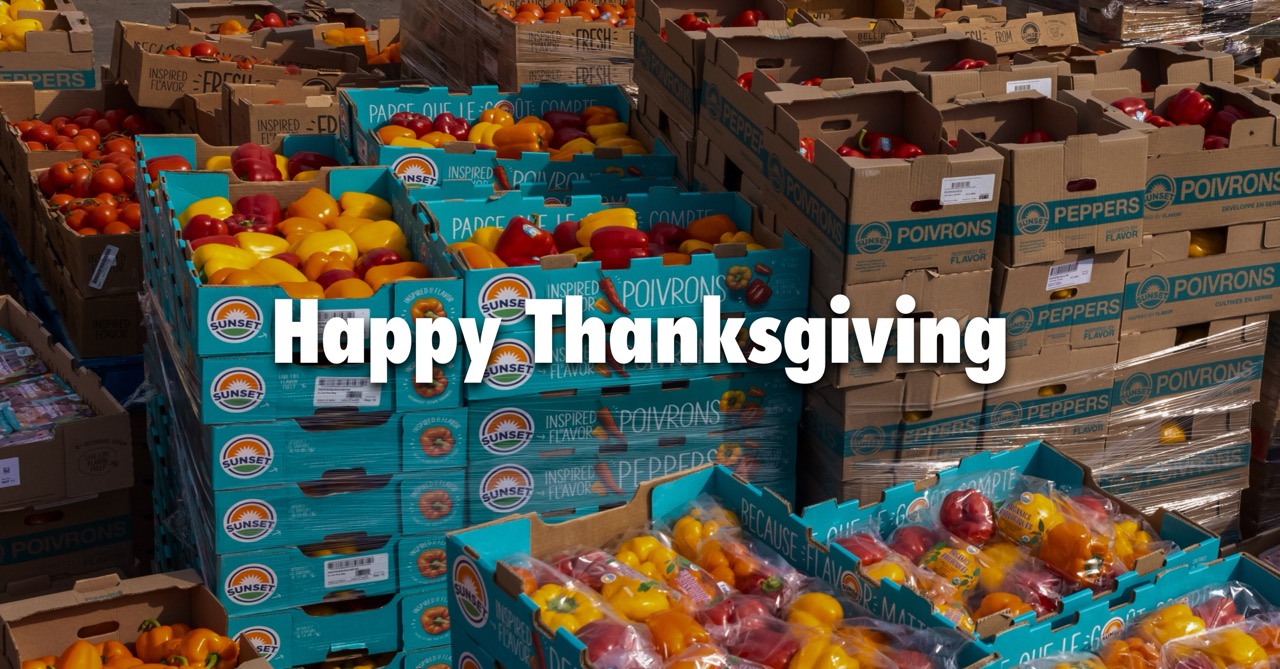
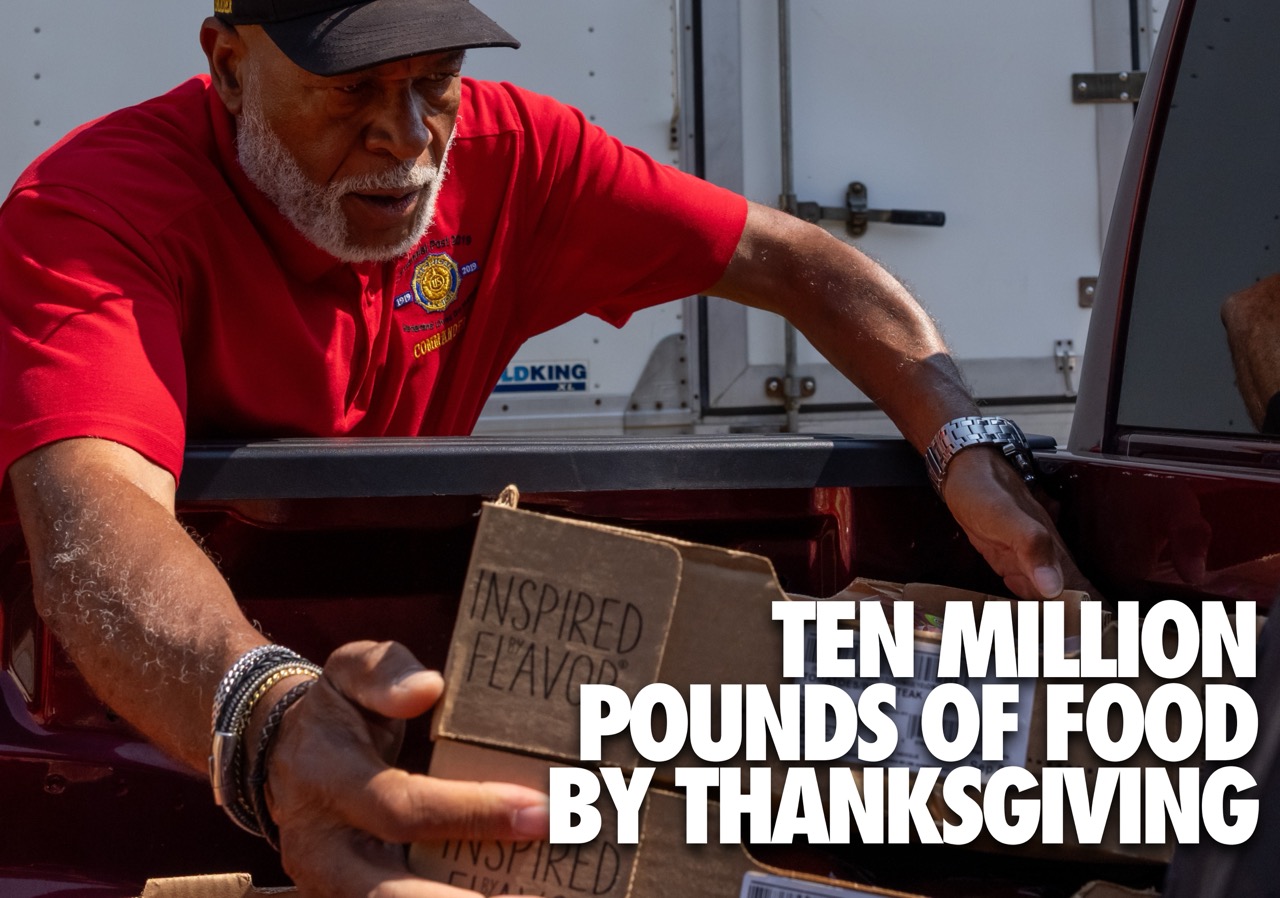
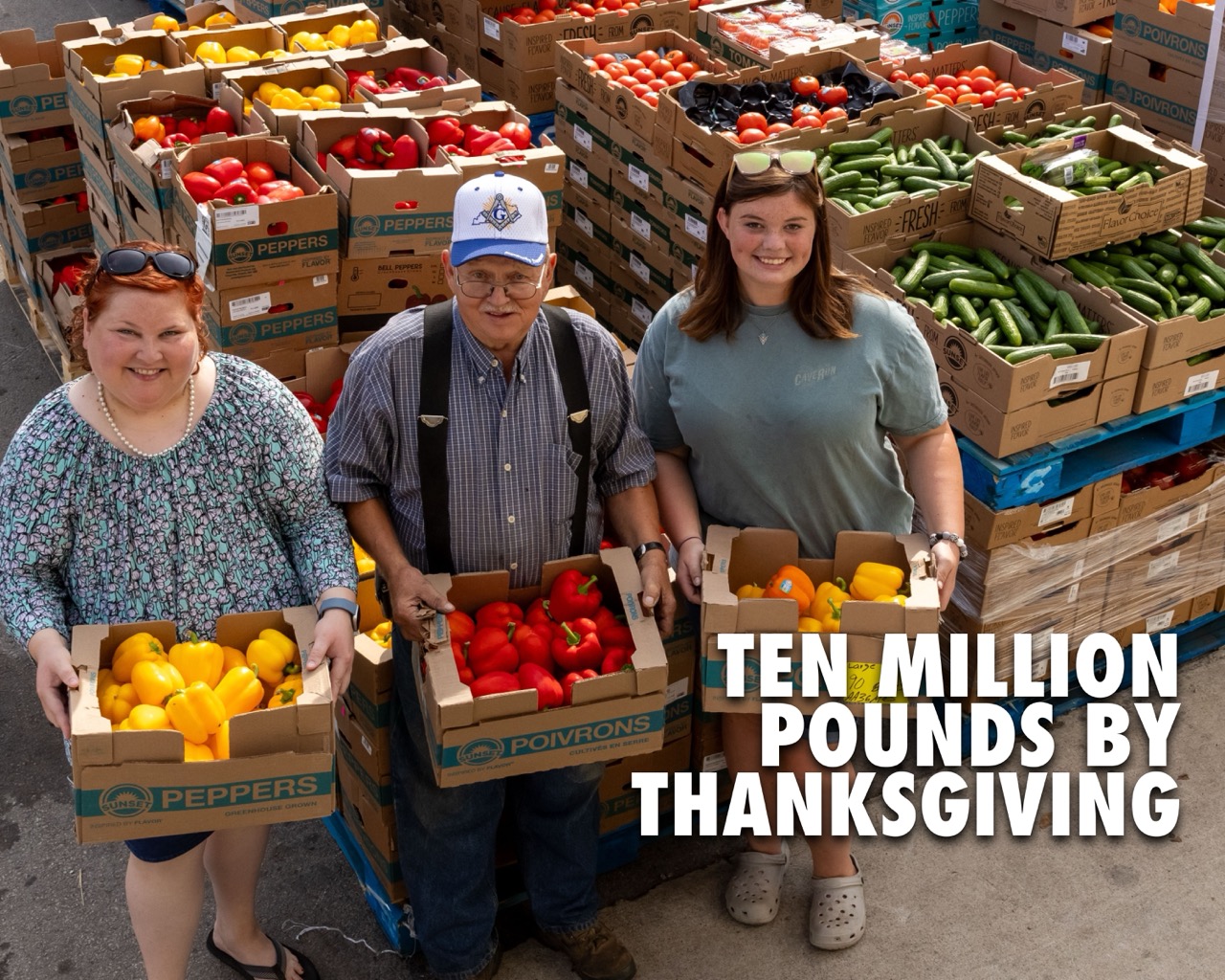
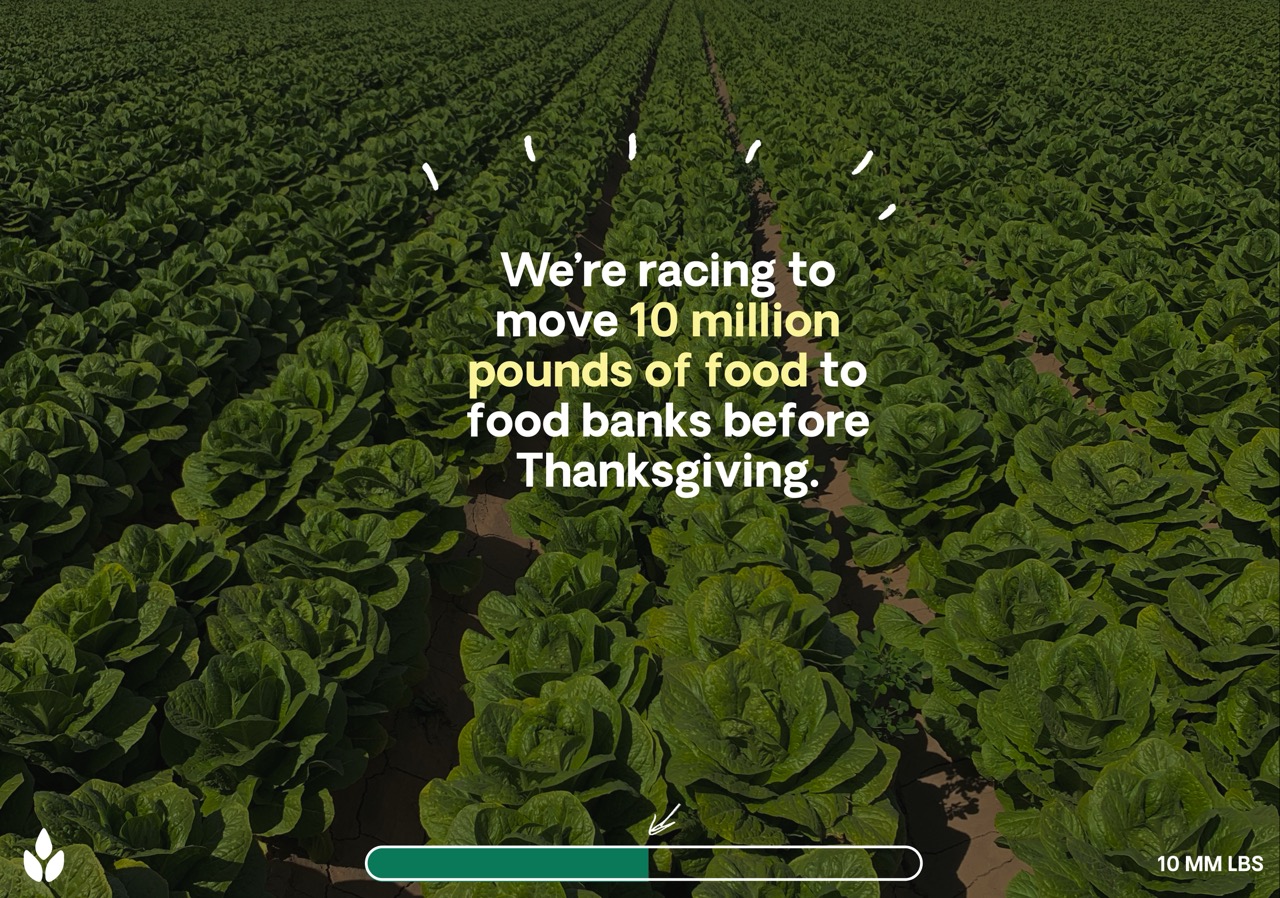
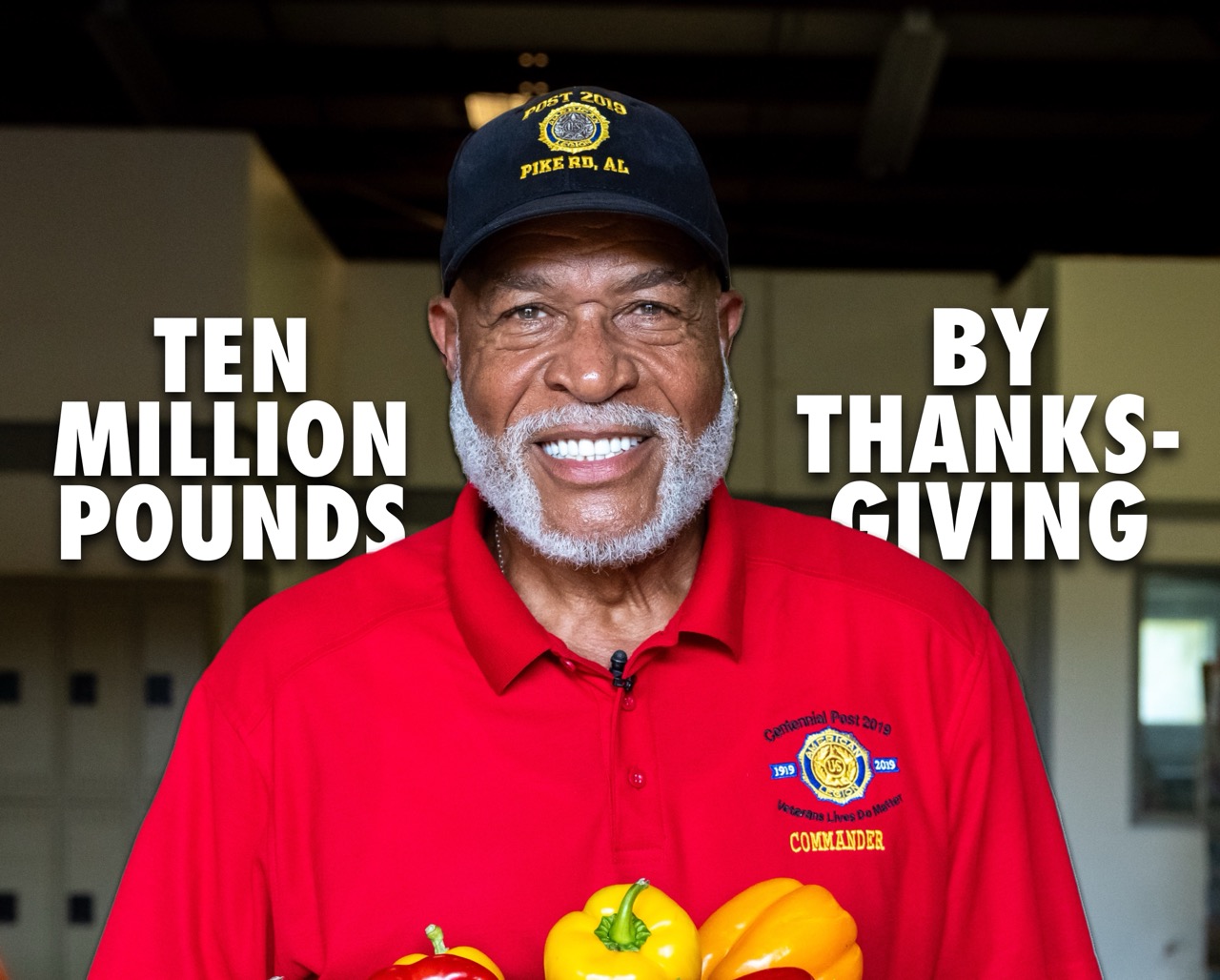
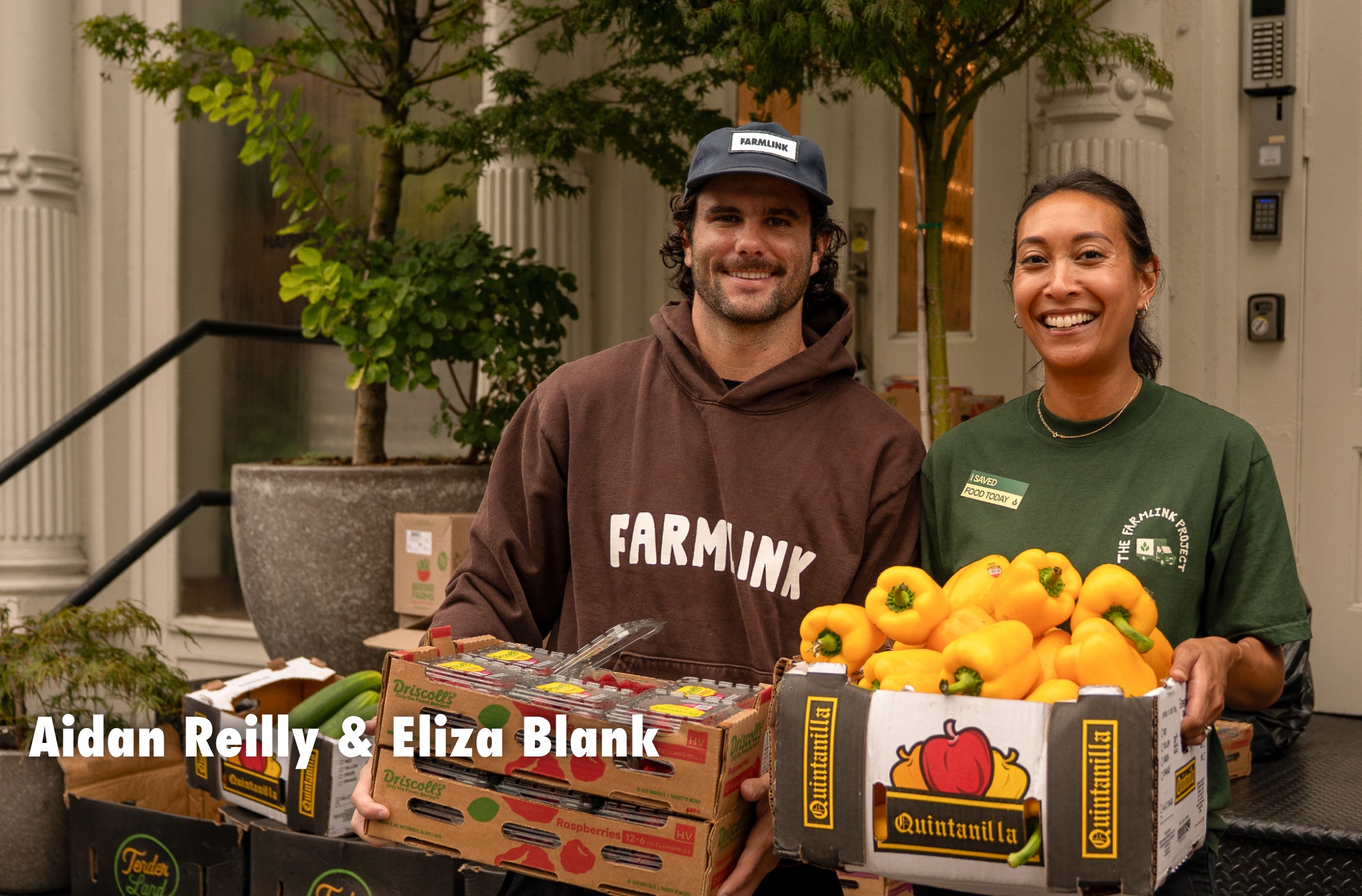
.svg)
.svg)
.svg)